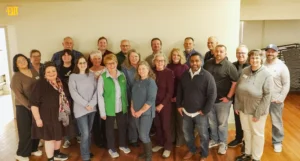
The legendary coach, Vince Lombardi, once said, “Football is like life – it requires perseverance, self-denial, hard work, sacrifice, dedication and respect for authority,” and most from the Baby Boomer and Gen X generations would agree. However, in the past few decades we have witnessed a growing American mindset that often embodies the spirit of disregard for authority and disrespect for elder society members. Before anyone dismisses what I’m saying and chalks this up to another rambling opinion from an “older and out-of-touch” Gen Xer, hold on. I am fully aware that in many regards, this country that offers us the freedom to share our opinions was in some ways very much founded on rebelling against authority.
Authority, as history records, that had little regard for the common man and sought ultimate power. At the same time, authority, in and of itself, cannot only be a good thing, but in its purest form . . . a necessary thing. In conjunction with demonstrating and teaching our children about authority, we have the opportunity to also model respect and honor for our elders. But, as with anything in parenting, or our current world in general, balance plays a critical role.
How can we lovingly and effectively display the proper use of authority and the values of respecting elder members within our family and community? Perhaps it is in our understanding and communication of the meaning of these things. I recall my wife retelling of the time she was pulled over for a speeding infraction, with all three of our then young sons in the car. Not only was she embarrassed, she was both mad at herself and upset about the impending consequences, such as fines and increased insurance rates. Tears ensued as she meekly took the ticket from the officer’s hand.
Initially, our sons sat in stunned silence, but eventually one piped up, “Mom, are you mad at the police officer who gave you that ticket? Is he bad? He made you cry!”
My wife replied, “No, I’m only mad at myself. The police officer was simply doing his job. I broke the law, when I wasn’t watching how fast I was going. The police officer was enforcing rules that are put in place to protect us, not hurt us . . . they serve to do just the opposite.”

This little anecdote serves to paint the bigger picture of what real authority should look like: the people and guardrails put in our lives to guide and protect us. With this understanding of “authority,” it becomes easier for us to model and teach our children to adhere to it. Are there abuses of authority? Of course. As parents, along with the good aspects of anything, we have to navigate our young to identifying the bad.
When broaching the subject of authority, often we think of our “elders.” Traditionally, in almost every culture, the elders of a community have been held in high regard. Again, in these modern times we do not always see this. There are instances of elder abuse, and complete disregard for someone deemed as no longer “contributing” to society. But what rich experiences we can give our children in the way of connecting them with those older than themselves. Remind children the “old people” or “grandpas” they see in the store have a life story. Was he a teacher? Was she a scientist? Did he climb Mt. Everest?
Also remind your young they will one day be old. It is important to live each day well and to honor those who have gone before them. Create opportunities to have your children hear the exploits of your great uncle who served in Korea, or your mom’s cousin who was the first girl at her school to make the golf team. My wife once had a student whose aging grandmother ran in the Olympics. No teacher had ever asked the grandmother to come share in a class setting, so imagine the awe and wonder of the students at being able to hear from a real, live Olympian! Not only that, it made her a person, not just a grandma or “old lady” to the young children.

Look at your family, your neighborhood. Find those treasures in your life that have so much to share with your children. For it is perhaps as the journalist Andy Rooney once said, “The best classroom in the world is at the feet of an elderly person.”



